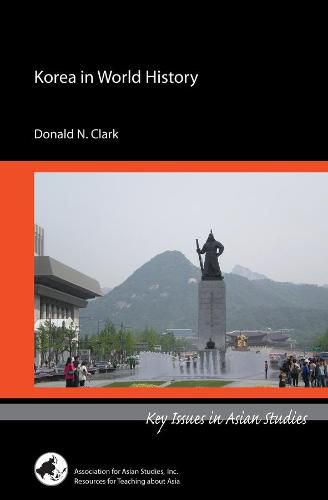Readings Newsletter
Become a Readings Member to make your shopping experience even easier.
Sign in or sign up for free!
You’re not far away from qualifying for FREE standard shipping within Australia
You’ve qualified for FREE standard shipping within Australia
The cart is loading…






Donald Clark does a masterful job of situating the entire sweep of Korean history in its global context thus belying the shop worn stereotype of Korea as a hermit nation. Clark uses his mastery of both medieval and modern history to vividly describe the often ignored contributions of this fascinating society to East Asian civilization writ large. His concise chapter arrangement and lively narrative writing pulls the reader into the Korean story while showing just how relevant that story is, particularly in modern times, for an American readership. Clark has condensed without sacrificing important detail, and he emphasizes important themes from Korea’s past that have combined with the turbulent 20th century to produce the complex strategic and economic situation at the beginning of the 21st century on the peninsula. Particularly trenchant are his chapters on the division of Korea as well as a thoughtful treatment of North Korea which is too often ignored in other texts. This book will make an excellent companion volume in East Asia survey courses, and other courses on East Asia. After all, as Prof. Clark points out again and again, understanding Korea remains vital to a true appreciation of East Asia’s past and present.
$9.00 standard shipping within Australia
FREE standard shipping within Australia for orders over $100.00
Express & International shipping calculated at checkout
Donald Clark does a masterful job of situating the entire sweep of Korean history in its global context thus belying the shop worn stereotype of Korea as a hermit nation. Clark uses his mastery of both medieval and modern history to vividly describe the often ignored contributions of this fascinating society to East Asian civilization writ large. His concise chapter arrangement and lively narrative writing pulls the reader into the Korean story while showing just how relevant that story is, particularly in modern times, for an American readership. Clark has condensed without sacrificing important detail, and he emphasizes important themes from Korea’s past that have combined with the turbulent 20th century to produce the complex strategic and economic situation at the beginning of the 21st century on the peninsula. Particularly trenchant are his chapters on the division of Korea as well as a thoughtful treatment of North Korea which is too often ignored in other texts. This book will make an excellent companion volume in East Asia survey courses, and other courses on East Asia. After all, as Prof. Clark points out again and again, understanding Korea remains vital to a true appreciation of East Asia’s past and present.